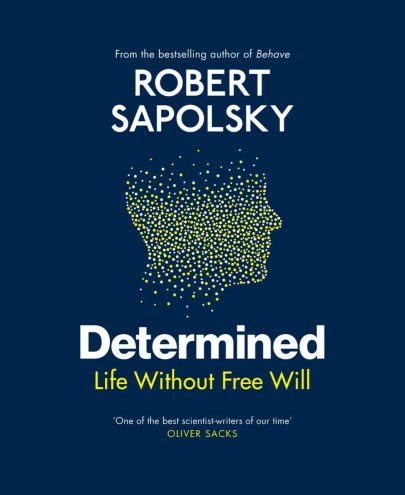Nov 26, 2015 Books
French fiction v French society: the rematch.
This article was first published in the November 2015 issue of Metro.
The Mersault Investigation
Kamel Daoud
(One World Press, $20)
Submission
Michel Houellebecq
(HEINEMANN, $37)
For 75 years, French literature has been dominated by a man who never existed: a bookkeeper in an Algerian shipping company, intelligent but unambitious, contemptuous of social mores, honest to the point of brutality, stoically embracing the absurdity of life and death, even his own.
The figure of Meursault, the anti-hero of Albert Camus’ 1942 novel, The Stranger, has, since his fictional execution for murdering an Arab, been reincarnated repeatedly as an archetypal existentialist suffering an unmistakably modern and French malaise.
Which makes Kamel Daoud’s reinvention of the myth a compelling and of-the-moment read. (It’s short-listed for France’s premier literary prize.) Daoud reimagines the story from the point of view of the brother of the victim, who grows up seeking revenge for the killing and the indignity of its immortalisation in the literary canon.
Daoud’s reinvention is a compelling and of-the-moment read.
In the original, the victim is not even named. Nor do the injustices of the French colonisation of Algeria merit a mention. Daoud’s narrator redresses this, naming the victim Musa (Moses), and himself Arun (Aaron), and crediting Meursault’s crime as the inspiration for his own execution-style killing of a French settler during the Algerian revolution.
There is a delicious interplay of fact and fiction in the suggestion that Arun and his mother may have misunderstood the fictional nature of Camus’ narrative and used it to explain the grimier truth behind Musa’s disappearance in wartime Algiers. The truth is curiously beside the point. What Camus wrote as an affirmation of a new philosophy, Arun experienced as unthinking racist hatred. It’s this asymmetry than leads inexorably to more violence.
Segue to the other French novel making a splash, Submission, a novel of ideas (some quite inflammatory given the Charlie Hebdo killings), by Michel Houellebecq, the éminence grise of France’s literary enfants terribles. It’s the latest of Houellebecq’s broadsides against capitalism, consumerism, technology, sexuality and art — in short, much of what we hold dear.
He depicts a near future in which the Muslim Brotherhood has come to power in France, riding a demographic tipping point (the Muslim population having sustained a high birthrate), abetted by a climate of fear created by street violence, a fractious establishment, and — his main target — a French people who have lost touch with their founding principles and history of collaboration with nasty regimes.
The difference here is that the Islamists are perfectly charming. That, at least, is the pleasant surprise awaiting the central character, Francois. He is a professor at the Sorbonne (now an Islamic university), and a familiar Houellebecq narrator: lugubriously witty, misanthropic, obsessed with kinky sex. He assumes his teaching career is finished under the new regime (he was bored anyway). His Jewish girlfriend has fled to Israel, and he fails in a half-hearted attempt to flee to a monastery.
The novel relates Francois’ gradual seduction by the new regime, as the French population and intelligentsia nervously embrace it. The street violence dwindles away. Sharia law introduces subsidies that lure women out of the workforce, to the delight of men, who all now have jobs and, what’s more, can try out polygamy. Women are veiled, petro-dollars flood in from the Middle East and anti-Semitism becomes accepted as natural.
Disquiet is countered by the government’s vision for France to lead a confederation of states around the Mediterranean, a rebirth of the Roman Empire under Islam and speaking French.
The satire may stretch credibility, but is often very funny, and the questions it raises are worthy of attention: questions around the source of cultural norms, the role of demographics in shaping ideology, and the troubling fact that societies seem to need a religion, or at least a shared ideology, to be robust.
At such a time, Houellebecq suggests, what a nation cannot afford is too many of its citizens choosing to disengage and become “outsiders”.





